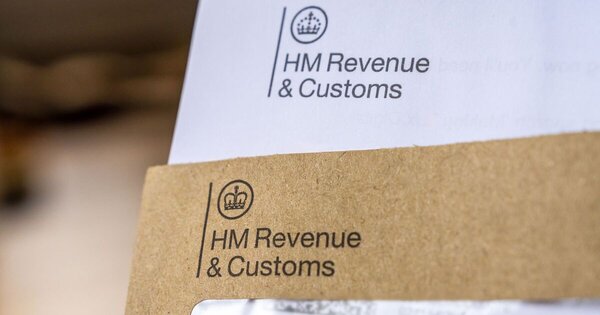
How to Register and File Tax Returns for Digital Content Income
If your total digital content earnings exceed £1,000 in a tax year, you need to register as self-employed with HMRC. This threshold is based on qualifying income, which includes your trading and property income before expenses.
This £1,000 is your Trading Allowance – a tax-free buffer for small earnings. If your qualifying income exceeds this threshold, you may be required to comply with Making Tax Digital rules from the next tax year. Go over this, and you’ll need to complete a Self Assessment tax return.
Registration is straightforward through the HMRC website. Sole traders and those in self employment must ensure they are registered correctly. You’ll need to do this by 5th October following the tax year in which you started earning.
Your tax return must be filed by 31st January the following year. Under Making Tax Digital, you may also need to submit a quarterly update to HMRC, and you can choose to align these with calendar quarters for simplicity. Miss this deadline, and you’ll face automatic penalties that increase over time.
Keep track of when payments are actually received, not when they’re earned. If YouTube pays you in July for June views, that’s July income for tax purposes. If you work for one company, having a clear contract is important to establish your self-employment status and ensure IR35 compliance.
Record-Keeping Essentials for Content Creators
Good record-keeping isn’t just a legal requirement – it’ll save you headaches and possibly money too.
Track every penny earned across all platforms. Screenshot payment summaries, download statements, and keep everything organised by month. Accurate record keeping also supports easier and more accurate tax calculations.
For expenses, keep receipts for everything business-related. That new camera, editing software subscription, or props for your videos can be tax-deductible.
Consider using accounting software specifically designed for freelancers. Using a business bank account alongside your accounting software streamlines financial tracking and improves tax calculations by keeping personal and business finances separate.
I learned this lesson the hard way when I lost a shoebox of receipts before my first tax return. The estimated figures I submitted triggered a review that could have been avoided.
Remember to keep records for at least six years. HMRC can investigate that far back ifthey have questions about your tax affairs. Appointing multiple agents can help manage different aspects of your tax compliance, especially under Making Tax Digital.
Finally, make sure to track and claim all available tax allowances each year to reduce your overall tax liability.

Digital Links and MTD Requirements: Staying Ahead of Compliance
The UK’s Making Tax Digital (MTD) initiative is transforming how digital creators manage their tax affairs. Under MTD, you’re required to keep digital records of your business income and expenses, and submit quarterly updates to HMRC using compatible software.
A key part of MTD compliance is ensuring that your digital records are connected through digital links. This means your accounting software, spreadsheets, and any bridging software you use must be able to transfer data electronically—no manual copying and pasting allowed. Digital links help maintain the integrity of your financial records and make it easier to submit accurate quarterly updates.
If you’re already using record keeping software, bridging software can help you connect your existing system to HMRC’s digital platform. This allows you to submit quarterly updates and your final declaration without overhauling your entire workflow.
Staying up-to-date with HMRC’s latest guidance on digital links and compatible software is crucial for digital creators. By embracing digital tools and maintaining proper digital records, you’ll not only avoid penalties but also streamline your tax digital process—leaving you more time to focus on creating content.
Tax-Deductible Expenses That Content Creators Often Miss
Equipment is an obvious deduction – cameras, lighting, microphones, and computers used for your content creation.
Software subscriptions for editing, scheduling, and analytics tools are fully deductible against your digital income.
Working from home? You can claim a portion of your household bills based on the space and time used for content creation.
Don’t forget about marketing costs. Paid promotions, website fees, business cards, and networking events all count.
Professional development matters too. Courses to improve your content skills, books about your niche, and subscriptions to industry publications are legitimate expenses.
For expenses, keep receipts for everything business-related. Tracking all business expenses, including travel expenses, is essential to ensure you claim all allowable business expenses.
Music, stock footage, and font licenses purchased for your content are deductible. Claiming allowable business expenses can significantly reduce your tax bill. Even your streaming subscriptions might qualify if used for research.
Diligent expense tracking and claiming all eligible deductions offer significant benefits, making tax preparation easier and helping you maximize your savings.

Final Thoughts
Tax doesn’t have to be terrifying. With good record-keeping and a basic understanding of your obligations, you can stay on HMRC’s good side.
Start organising your finances now, not in a panic on January 30th. Your future self will thank you.
Remember that tax rules change regularly. Major updates and new initiatives are often announced in the government's autumn budget, so it's important to stay informed about these fiscal events. What’s true today might not be next year, especially in the rapidly evolving digital content space.
When in doubt, ask for help. As your income grows, investing in professional tax advice often pays for itself in stress reduction and tax savings.
Simplifying Digital Content Creator Tax Filing
Managing taxes shouldn't steal time from creating the content your audience loves.
The UK's first personal tax app, Pie was built with creators in mind, tracking income across multiple platforms automatically.
Our system identifies deductions specific to content creation, helping you maximise legitimate tax savings without crossing any lines.
We connect directly with HMRC for seamless filing, turning a day-long headache into a few simple clicks.
Curious how it works? Take a peek at PIE to see how we're making tax simpler for creators like you.











